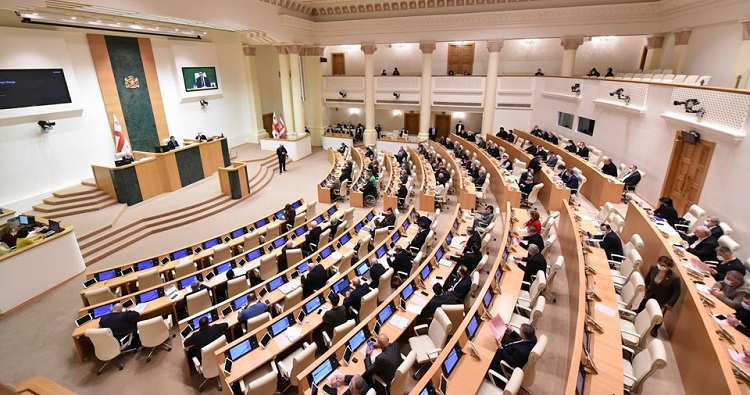Parliament passes deoligarchisation bill in first reading

The bill establishes such issues as the definition of the concept of an oligarch, recognition of a person as an oligarch and their entry into a relevant register, exclusion of oligarchs from the register and maintenance of the said register. Photo: Parliament of Georgia
The Georgian parliament on Thursday approved the bill on deoligarchisation, a part of the conditions for obtaining the European Union membership candidate status, in its first reading.
The bill establishes such issues as the definition of the concept of an oligarch, recognition of a person as an oligarch and their entry into a relevant register, exclusion of oligarchs from the register and maintenance of the said register.
It also sets out legal consequences of recognising a person as an oligarch and filling in relevant declarations by certain persons regarding their contact with an oligarch and their representative.
The definition of an oligarch is outlined as a person who participates in political life, enjoys “significant influence” on mass media, and bears “significant economic and political weight in public life”.
In further details, the bill notes that the proven amount of assets possessed by subjects of the law and their entrepreneurial legal entities benefitting them must exceed 1,000,000 times the domestic subsistence minimum established for able-bodied persons.
In addition, it establishes that the parliament will make a decision on recognising a person as an oligarch, and outlines that a person included in the register is prohibited from making donations from their funds to support political parties, becoming a buyer in privatisation of “large-scale entities”, financing any political campaign, and holding gatherings or demonstrations with political demands.
 Tweet
Tweet  Share
Share